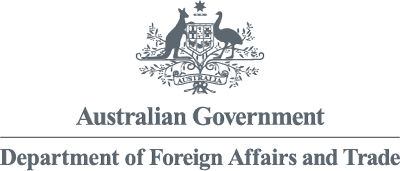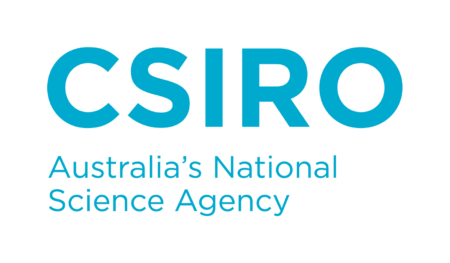Case Study: IPPIN Grants | CIRAC
How CIRAC is shaping a new frontier of sustainable snack packaging
Food packaging accounts for 40% of all plastic waste worldwide. The Circularity Accelerator (CIRAC), in part supported through an IPPIN grant is developing ground-breaking thermal processing technology to separate aluminium in plastic to ensure the plastic can be reused.

“I’ve always been driven by the stark reality that even a single piece of plastic can fatally harm marine life—this urgency fuelled my passion to innovate recycled plastics. CIRAC’s journey, converting notoriously tricky aluminium-laminated packaging into valuable materials, is rooted in that motivating mission” Sikarin Tamiyakul, Co-Founder of CIRAC.
| Project Lead | Macquarie University |
| Project Partners | The Thailand Plastics Circularity Accelerator (CIRAC) |
| Grant Support | Funding and partnership development |
| Grant Amount | $100,000.00 |
| Trial Location | Thailand |
| Project Duration | 12 months |
The challenge
Did you know much snack and food packaging is extremely difficult to recycle? That’s part of the reason why food packaging accounts for 40% of all plastic waste worldwide! The reason it’s so challenging to recycle is because much plastic in snack packaging has a thin layer of aluminium. This aluminium makes it hard to separate and is tends to be rejected by many recycling systems. To add to this problem, the lamination process (bonding plastic and aluminium) is energy-intensive, adding to the carbon footprint of packaging production.
The innovation
IPPIN Alumni and 2025 IPPIN Grant recipients, the Thailand Plastics Circularity Accelerator (CIRAC) are addressing this challenging by creating a system that tackles plastic and aluminium waste streams simultaneously, reducing virgin aluminium production costs and CO2 emission to approximately one-third and transforming landfill liability into profitable, circular resources.
Through an IPPIN Grant, CIRAC can partner experts at Macquarie University to further develop and enhance their technology. This grant allows them to further develop their ground-breaking thermal processing of aluminium in plastic waste, offering a cost-effective alternative to traditional recycling methods.
Making an impact with IPPIN Support
IPPIN’s Accelerator+ Program and the IPPIN Grant unlocked CIRAC’s access to AUD 100,000+ in funding support, technical assistance and partnerships. This grant will bridge the gap for CIRAC to take their proof-of-concept into scalable pilot systems.
Through the IPPIN Accelerator+ Program, CIRAC were able to hone their fundraising strategy, revenue model, and pitch through personalised coaching, workshops and mentorship, fast tracking CIRAC’s go-to-market timeline. Crucially, the program’s regional network connected CIRAC with industry partners, policymakers, and fellow innovators across Southeast Asia.
CIRAC explain how tapping into IPPIN’s global network has been particularly instrumental in their innovation journey.
“Through the Accelerator+ facilitated introductions to CSIRO-linked experts and government stakeholders—like Thailand’s National Innovation Agency—creating pathways for multi-stakeholder pilots and policy collaboration we would likely have missed independently”, says Sikarin Tamiyakul, Co-Founder of CIRAC.
Key learnings
When asked what CIRAC’s main learnings have been on their entrepreneurial journey they shared their top three learning highlights:
- Elevating TRL – Through structured workshops and personalised coaching, CIRAC refined their pilot technical design, progressed to industrial-scale demo status, and mapped a clear pathway from lab-scale TRL 7 readiness.
- Investment readiness – Sessions on fundraising, financial modelling, and pitch refinement—backed by access to a pooled AUD 100,000+ in services/grants—sharpened CIRAC’s investor engagement strategy and fast-tracked their go to market road map.
- Partnership opportunities – Connections forged through Demo Day to CSIRO mentors, and regional networks (across Thailand, Vietnam, and Indonesia) gave CIRAC direct access to potential industrial partners like Macquarie University, national innovation agencies, and government stakeholders—opening doors to previously untapped policy support.
Next steps and opportunities
CIRAC’s ever-evolving technology plays an important role in informing frameworks in plastic manufacturing policy. Their upcycling of hard-to-recycle aluminium-laminated packaging complements the growing rollout of Extended Producer Responsibility (EPR) schemes and recycled-content mandates across Southeast Asia, providing a practical compliance pathway for brands and producers looking for more circular solutions.
As EPR policies become stricter, CIRAC serves as an accredited processing solution for complex waste streams—helping companies meet regulatory goals and reduce landfill reliance.
Looking ahead, the Grant team will explore pilot collaborations with national packaging authorities and producer-responsibility organisations to formally integrate CIRAC’s process into EPR frameworks and supply-chain standards across the region.
CIRAC’s goals from here are to:
- Scale to industrial pilot – Leverage IPPIN-funded support and new partnerships to commission a medium-scale demo plant (TRL 7–8) in 2026, enabling the transition from lab prototype to ongoing operation.
- Secure strategic funding & partnerships – Build their growing momentum by raising additional capital and aligning with off-take partners for recycled aluminium and pyrolysis oil.
- Formalise EPR engagement & policy integration – Begin pilot deployments with producer responsibility organisations and national packaging authorities in Thailand and Southeast Asia, embedding CIRAC as an approved solution under Extended Producer Responsibility frameworks.
Projects such as this one critical gap in the plastics innovation space and will make important contributions towards the UN plastics Treaty goals.
Further information
For partnership or investment enquiries, contact the IPPIN team:


